Please note that this posts links to collection items originally published in the latter half of the 19th century. The text contained in these publications should be considered in a historical context and may not represent modern views.
In honor of Black History Month, we present a small but important part of African-American history and culture: the Fisk Jubilee Singers. This a cappella group of nine students from Fisk University was organized in 1871 to raise money ($20,000, to be exact) for their financially troubled institution. They succeeded magnificently. In the process, they were instrumental in preserving traditional African American spirituals and bringing them to a vastly wider audience, both in the U.S. and Europe.
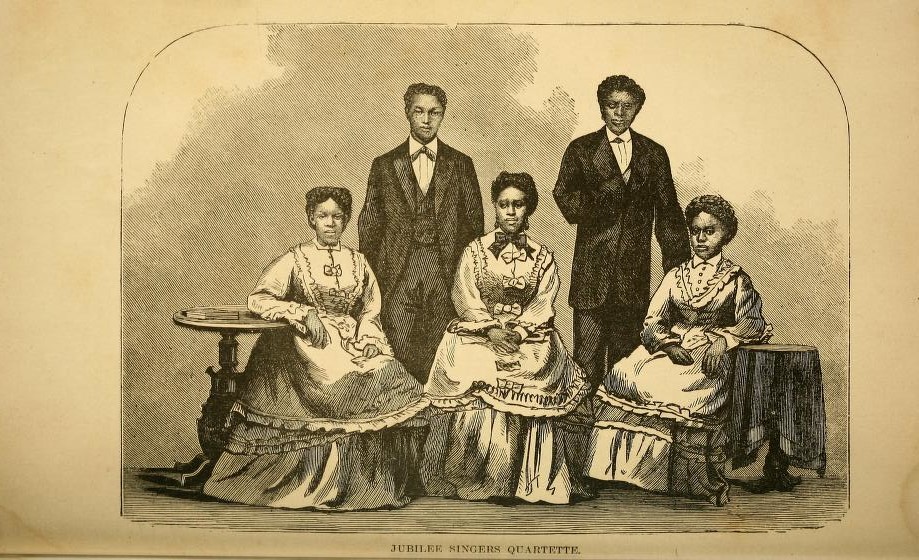
The early history of the group is documented in Gustavus D. Pike’s The Jubilee Singers and their campaign for twenty thousand dollars (1873), held in the library of the Smithsonian’s Anacostia Community Museum and that of the National Museum of American History, as well as available in our Digital Library. The group disbanded in 1878, exhausted from a grueling touring schedule during which all too often no hotel was willing to accept them. A new choir was formed in 1879 and still exists today.
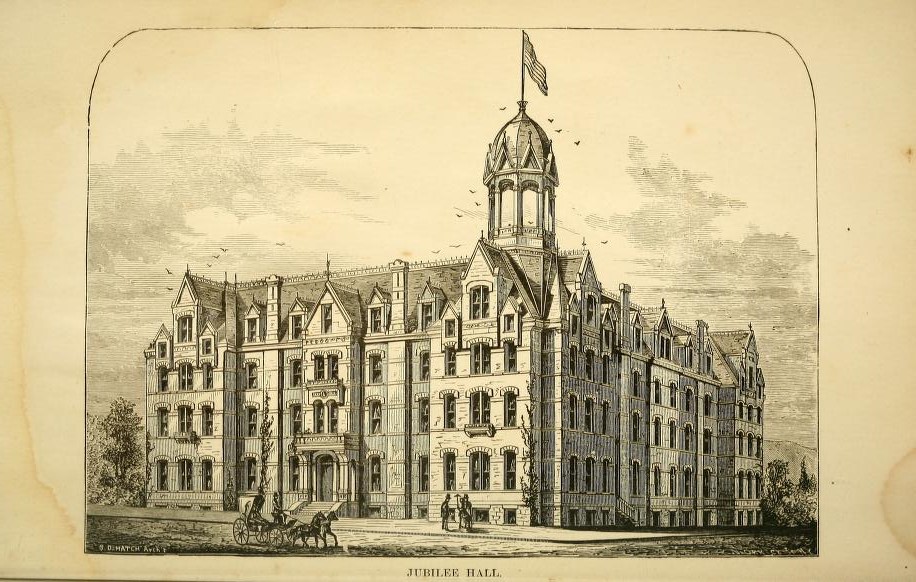
Two original members of this remarkable ensemble were Miss Ella Sheppard and Mr Thomas Rutling. Ella Sheppard was both pianist and mentor for the Singers. Her father, already a free man, was able to buy and free her; the owner refused to sell her mother as well. Ella and her mother reunited after the Emancipation Proclamation. She received a musical education, but, as she later explained, “[I] was the only colored pupil; was not allowed to tell who my teacher was: and, more than all that, I went in the back way, and received my lessons in a back room up stairs …”(Pike, p. 52). She later became a friend and confidante of Booker T. Washington and Frederick Douglass.
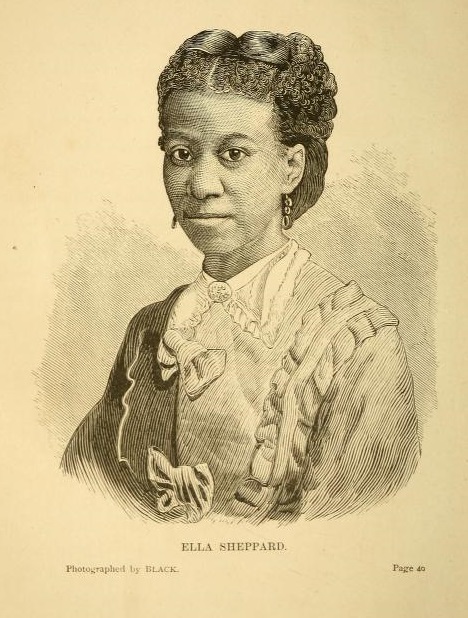
Thomas Rutling was born in 1854. His mother, a habitual runaway, was sold when he was two — his earliest memory; several of his sisters were sold, as well. Young Tom became the conduit of information between “the house” and the slave quarters during the Civil War. After the war, he and his brother located and reunited with one of their eight sisters, and Tom learned to read. “I remember,” he recalled as a Jubilee Singer, “how hard work it was — harder than picking out my Latin lessons this summer” (Pike, p. 57).
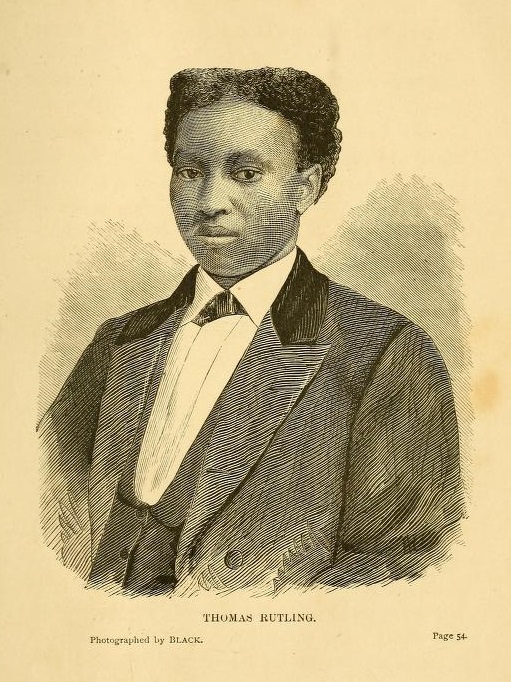
Two other members of the original Singers were Maggie Porter and Benjamin M. Holmes. As a child, Maggie Porter led a relatively sheltered life as playmate to the son of her owner. After the war, she was one of the first pupils of the newly formed Fisk School, the later Fisk University. By fifteen, she was teaching at a school near Nashville. Over the Christmas vacation, the Ku Klux Klan rendered the school a heap of ashes; undaunted, she continued to teach at other schools. When Fisk University invited her back because of her musical talent, she became a member of the Jubilee Singers.
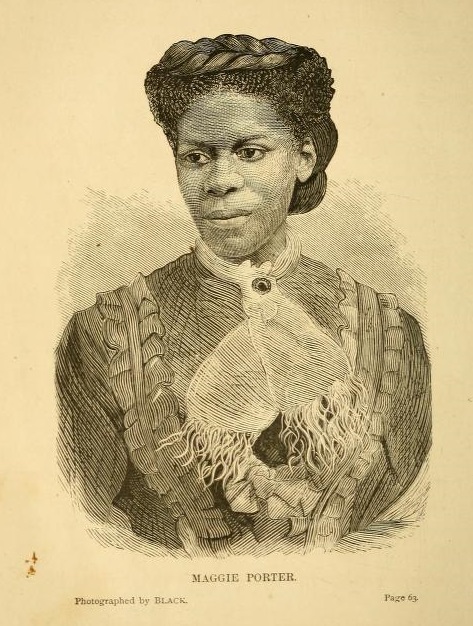
Benjamin Holmes was born in Charleston, S.C. in 1846 (or 1848, he himself didn’t know) and taught himself to read and write while apprenticed to a tailor. When the Union Army approached the city in 1862, his owners fled to the countryside after selling him to a trader; Benjamin was in the slave mart when he read of the Emancipation Proclamation. “Such rejoicing as there was then!” he later remembered (Pike, p. 58). His reading skills enabled him to earn a good living as a clerk and a teacher after the war, but his part of Tennessee didn’t like “colored” schools, either — one day, someone shot through the window of the class he was teaching. At Fisk, he studied history, Latin, the practice of teaching, and analysis.
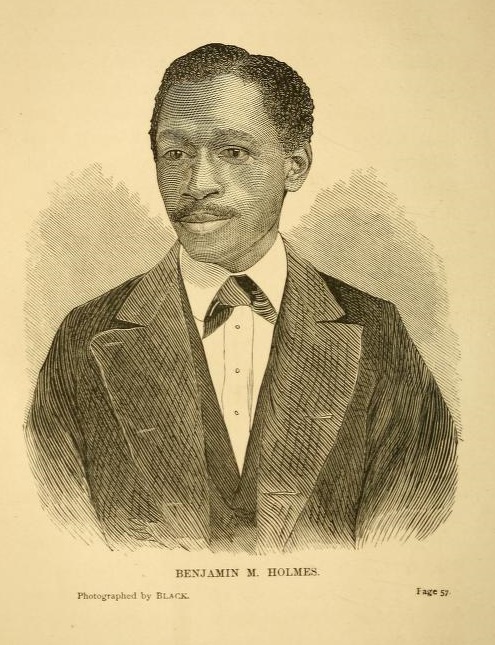
The Jubilee Singers were impressive individuals but what of their music? They feared white audiences would only want to hear white music, or the music of the black-face minstrels. Instead, the Jubilees were received warmly, if not with largesse, until they sang to the congregation of Henry Ward Beecher, the most popular preacher of his day and brother of Uncle Tom’s Cabin author Harriet Beecher Stowe. Beecher bade his rich parishioners to give generously — and they did. The group started performing their “Negro spirituals” to sold-out venues. Sheet music was sold during intermission, spreading it beyond their immediate audiences. This helped ensure that this music survived and prospered as an enduring legacy from tragic times.
Mark Twain said of the group, “I do not know when anything has so moved me as did the plaintive melodies of the Jubilee Singers.” In 2002, the Library of Congress added the 1909 recording of that year’s Jubilee Singers’ “Swing Low, Sweet Chariot” to the United States National Recording Registry. We can listen to that and hear, perhaps, echoes of those first Jubilee Singers, like Ella Sheppard, Thomas Rutling, Maggie Porter, and Benjamin Holmes, and reflect on the remarkable history of the group.
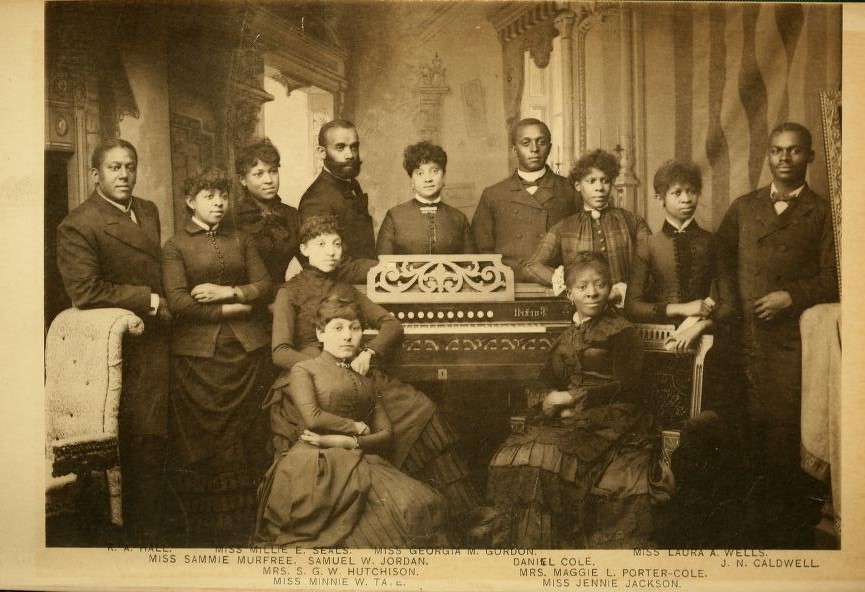
In addition to Pike’s account of the Jubilee Singers, our Digital Library also holds The story of the Jubilee Singers by J. B. T. Marsh (1880). Both Marsh and Pike include sheet music of the spirituals sung by the Jubilee Singers, if you would like to play their music and participate in the spiritual tradition yourself.

One Comment
I must thank the Smithsonian Libraries for posting this synopsis of the Fisk Jubilee Singers.
I have been investigating the Jubilee Singers tours of Britain in 1873 and 1876 in particular my home town of Ayr in Scotland. I know they performed ( to great acclaim) in Ayr on 21/10/1873
and 10/11/1876. To date I have not been able to find an itinerary for 1873. I should be obliged if you would point me in the right direction via an internet site.
As a matter of interest after a thorough search through the Ayr Advertiser newspaper for the years 1873/76 I found adverts for both concerts and also reports before and after each concert.
I note that the Jubilee Singers visit to Ayr was by invitation. One quote ” we advise our readers
to avail themselves of an unique treat and to purchase the higher priced tickets on the ground
that they are not paying so much for a pleasant entertainment as contributing to a noble
benevolent object.”
I feel I must also quote from the Scotsman newspaper from a concert in Edinburgh in October,
1873. It may seem unfair to highlight favourites but nevertheless I find the sentiments
uplifting. “Miss Mabel Lewis gave Tennyson’s ‘ Too Late’ with a power and pathos which
deservedly secured an encore.” and ” The gem of the evening, however, was a slave song
‘ The Old Man Dreams’ given by Miss Minnie Tait in a soft, sweet, thrilling voice, whose
charm lingered on the ear long after the last notes had died away.” Suffice to say this song
was also encored.
Anyway enough of my ramblings but as you can gather I have nothing but admiration for
the Jubilee Singers and their punishing schedule. The troupe even visited Rothesay on the
small island of Bute off the west coast of Scotland!!
O for an earlier invention of the recording machine?!
Thank You Very Much and Best Wishes,
Edwin England
Ayr, Scotland.